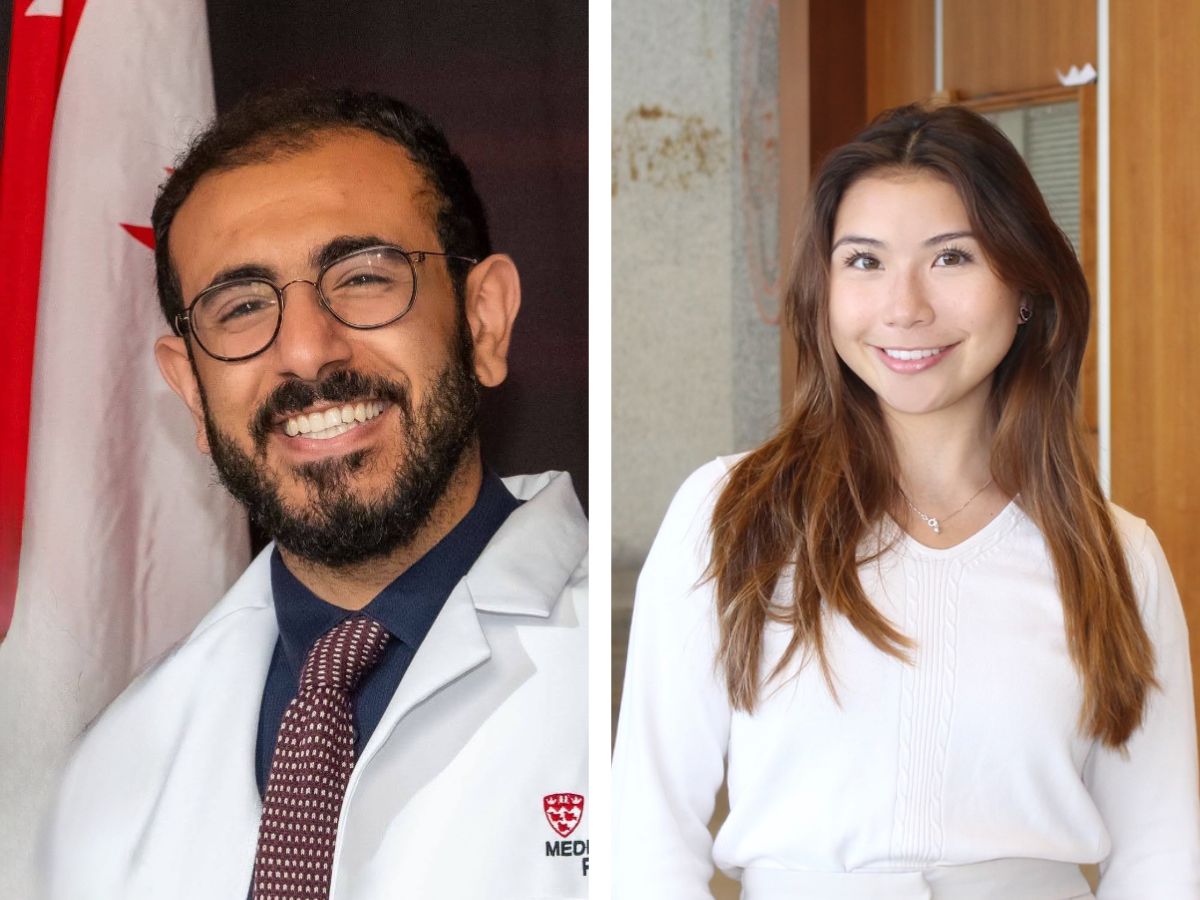STARS Spotlight: Exploring Medical Student Views on Resource Stewardship – The Pocket Card Survey
STARS students Peter Malik and Mary Roper from McGill University share their research project on exploring student perceptions in resource stewardship.
STARS Spotlight: Exploring Medical Student Views on Resource Stewardship – The Pocket Card Survey
STARS students Peter Malik and Mary Roper from McGill University share their research project on exploring student perceptions in resource stewardship.

How do medical students perceive resource stewardship, and what tools best support their understanding? These were questions driving third-year McGill medical students Peter Malik and Mary Roper as student leaders in the STARS (Students and Trainees Advocating for Resource Stewardship) program.
Past STARS leaders have created resource stewardship tools, but Peter and Mary sought to understand how these tools may influence students’ awareness and perception of resource stewardship. Their research project focused on the ‘Pocket Card’, a quick-reference guide for medical students on Choosing Wisely Canada recommendations, created by past STARS leaders Ali Butt and Marta Karpinski. These cards were distributed to pre-clerkship students at McGill, alongside a 13-question survey. The results of the survey found that an overwhelming majority of students wish to expand their knowledge of resource stewardship, and that accessible tools such as the Pocket Cards can be effective in achieving this.
Understanding the perceptions and efficacy of learning tools in medical education is crucial in the development of future resource stewardship tools and initiatives. This can impact curriculum changes and eventually, lead to changes in practice. The results of this project, Medical Student Perspectives on Resource Stewardship: The ‘Pocket Card’ Survey, were presented at the International Congress on Academic Medicine in Vancouver, BC, as well as at the 10th annual Choosing Wisely Canada National Meeting in Montreal, QC where Mary and Peter were recognized as SuperSTARS for their advocacy and innovation in medical education.
In addition to their research, the pair hosted events for students on their campus and across Quebec, including a trivia night and a seminar series featuring presentations on evidence-based prescribing by Dr. Emily McDonald, and appropriate care by Dr. Martin Makary. Not only did they seek to understand the perceptions of medical students in their research, they also actively engaged their community to advance resource stewardship.
“The past year has allowed us to further analyze the perspectives of resource stewardship principles among medical students, providing future insights for educational approaches in the upcoming years,” says Mary, who plans to continue to support curriculum advancements going forward.
Following all of their success in the STARS program, the two aren’t planning on slowing down. They are currently collaborating with 2024 STARS, Alexandra Larocque and Léa-Mai Simard, on a research project to evaluate the impact of the Pocket Card on decision-making in students entering the clinical setting. Mary and Peter also co-lead the McGill High-Value Care Club, working with 10 others to implement curriculum changes and advance resource stewardship principles.
“We hope to leverage our experiences over the last year to expand opportunities for our peers to participate in resource stewardship initiatives at the University,” says Peter, who hopes to continue his advocacy through this position.
STARS leaders, like Peter and Mary, are inspiring crucial discussions about resource stewardship and understanding of learning tools in medical education. Whether on the McGill campus, or across the health care system, this work is helping support students to embed resource stewardship in practice and encourage high-value care.
